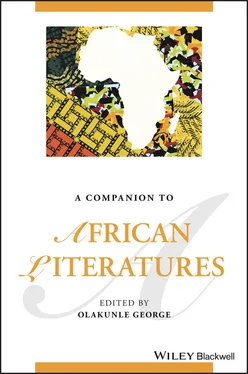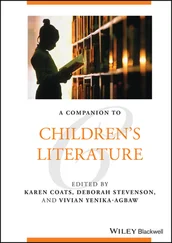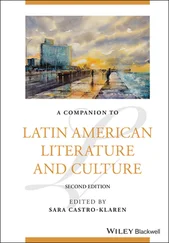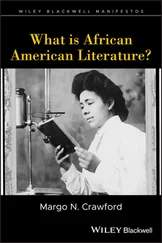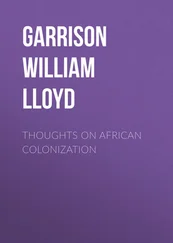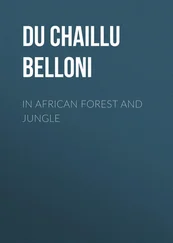Considered as a whole, the volume raises questions and opens conversations; it does not close them. Contributors developed individual chapters in line with their methodological preferences, paying attention to issues that may be specific to the literary tradition or confluence of traditions. The chapters, including the introductory overviews that open Parts I–IV, do not take the form of simple “surveys” in the traditional sense, and coverage is not the goal. Rather, the approach is to explore the different literatures in relation to selected aesthetic, social, historical, or philosophical questions. Some chapters dig deep into well‐studied writers, others introduce less‐studied figures or newer artistic exertions. Contributors thereby elucidate the social conditions, intellectual contexts, and aesthetic textures of the literatures.
In a volume devoted to networks of cultural objects as capacious as “African literatures,” some gaps and omissions are unavoidable. Readers will undoubtedly see areas they would have liked covered or issues they would have liked taken up. As already indicated, the volume is not designed to accomplish what advocates of traditional literary studies would call “coverage.” The option adopted in A Companion to African Literatures is to be selective and cognizant of the advantages, as well as limits, of the choices made. To give one illustration: of the hundreds of non‐European languages in use in Africa, only literatures in Amharic, Arabic, Swahili, and Yoruba are represented in this book. It is of course always important to challenge conservative and essentialist views on indigeneity and foreign‐ness. Likewise, it is productive to take seriously the understanding that Afrikaans, English, French, and Portuguese are by now African languages too, used in official discourses as well as in the daily lives of Africans. Nonetheless, in a volume such as this, and without mystifying indigeneity as essence, the utmost ideal would be to have more chapters devoted to literary traditions in precolonial or “indigenous” African languages. That has not been possible here. However, the hope is that the chapters devoted to African literatures in the precolonial languages will serve to attune readers not only to these literatures in themselves, but also to the vibrancy of multiple languages, expressive practices, and literatures on the continent. Thus, by the lights of what it covers, A Companion to African Literatures hopefully draws attention to the need for, and possibilities of, further study.
Taken together, the chapters that follow confront us with questions and insights about language, the contact of histories and peoples, and the existential dimensions of African literatures and related arts. In this way, A Companion to African Literatures equips readers to appreciate anew the heterogeneity of Africa as well as the broadening meanings of the literatures it continues to set in motion.
Part I East and Central Africa
1 East and Central Africa: An Introduction
Grace A. Musila
Apart from the annual ritual of declaring Ngugi wa Thiong’o the preferred winner of the Nobel Prize for Literature, other tropes that come up when mapping Eastern and Central African literary imaginaries are: Taban lo Liyong’s infamous declaration of East Africa as a literary desert; the Makerere Conference of 1962; the abolition of the English Department; and the seeming overshadowing of Malawi, Zambia, Somalia, Rwanda, Burundi, Ethiopia, Eritrea, and Djibouti by the region’s literary and economic powerhouses, Kenya, Uganda, and Tanzania.
In his preface to a study of East African literature co‐authored with Evan Mwangi, Simon Gikandi underscores what he terms a “strong sense of regionality” in East African literatures, which he considers to be partly a result of the region’s attempt to sustain political and economic stability in the 1960s and 1970s, while other parts of the continent were rocked by strife; but also, because the region’s authors enjoyed access to a flourishing publishing industry and academy which were heavily invested in the promotion of literary culture (Gikandi and Mwangi 2007, vii). Gikandi also attributes the relative youth of Anglophone East African writing to three factors: the relative smallness of the region and its population; its belated colonial contact that meant late establishment of colonial institutions central to literary production; and its writers’ regional locatedness, in comparison to writers from elsewhere (vii). For Gikandi, this regionalized sensibility had two effects: regional household names such as Okot p’Bitek remained unknown elsewhere for a long time, while the region’s Anglophone writing found itself doubly‐marginal, both in African literary history and relative to the region’s indigenous‐language literatures. Remarkable in this regard is the case of Anglophone literatures in Tanzania and Ethiopia, both of which retain much stronger local language (Swahili and Amharic, respectively) literatures.
Ethiopia and Tanzania both have a much older and larger catalogue of African‐language writing compared to English‐language writing. In both cases, history has had a major hand in crafting this literary scene: Tanzania (formerly Tanganyika and Zanzibar) was initially a German colony (1880–1919); after World War I, Germany handed Tanganyika over to Britain. An important fragment for Tanzania’s literary history is the Maji Maji resistance (1905–1907), in which various communities of Southern Tanganyika came together to protest forced labor in cotton plantations, among other grievances. While Tanganyika suffered heavy fatalities due to German‐engineered famine and war casualties – prophet Kinjeketile Ngwale’s reassurance that the special water would render combatants bulletproof failed to materialize – the resistance nonetheless distilled local communities’ grievances and enabled them to articulate these to themselves and the Germans in ways that earned the resistance an iconic place in Tanzanian national history. The resistance is the subject of one of the best known and most widely performed and taught Tanzanian plays: Ebrahim Hussein’s Kinjeketile (1970), easily an anticolonial classic, in the same category as Ngugi wa Thiong’o and Micere Mugo’s The Trial of Dedan Kimathi (1977). L. A. Mbughuni (1984, 256–257) emphasizes that both plays cast a glance back at Kenyan and Tanzanian histories of anticolonial resistance, pivoting around iconic leaders, Kinjeketile Ngwale and Dedan Kimathi, who, despite losing the battle, retain moral victory that eventually translates to anticolonial victory.
Tanganyika’s unification with Zanzibar to form the United Republic of Tanzania in 1964 was soon followed by first president Julius Kambarange Nyerere’s launch of Ujamaa or African socialism. From 1967, Tanzania’s national development was framed around Ujamaa, whose insistence on self‐reliance and equality inevitably impacted cultural policy, particularly given Nyerere’s investment in Kiswahili as a unifying national language and as a literary language. Nyerere took literature and Kiswahili seriously enough to personally translate Shakespeare’s Julius Caesar and The Merchant of Venice into Kiswahili, in part because these two plays’ concerns resonated with Ujamaa’s political project. By the time Nyerere conceded that Ujamaa had failed in 1985, leading to the liberalization of Tanzania’s economy and politics, the cultural impact of Ujamaa had taken root, resulting in a vibrant Kiswahili literary scene which, while building on a legacy of over three hundred years, was nonetheless strengthened by Ujamaa’s principles, in ways that allow Kiswahili writing to retain literary prominence to date in Tanzania (Mbise 1984).
Читать дальше
